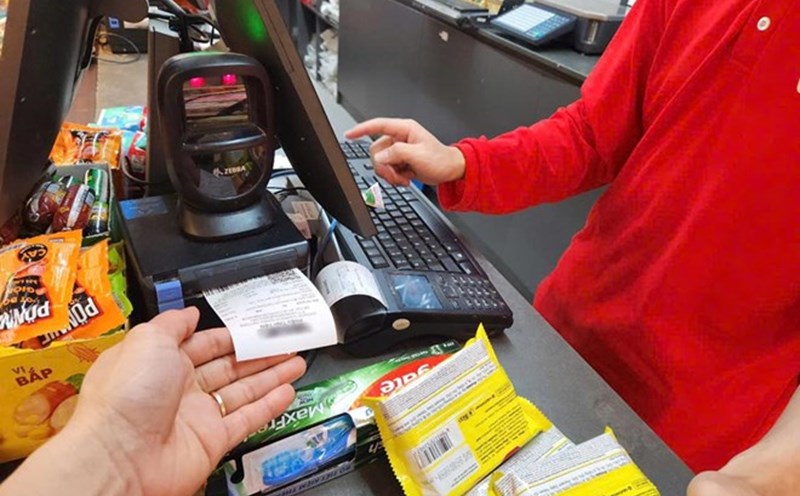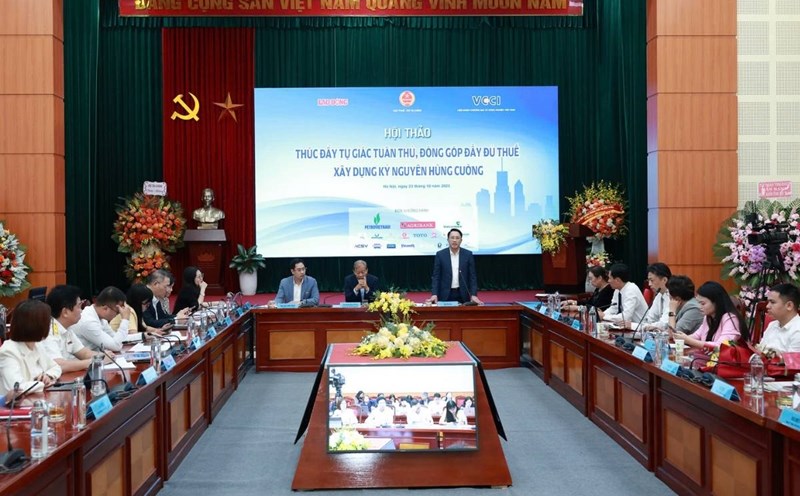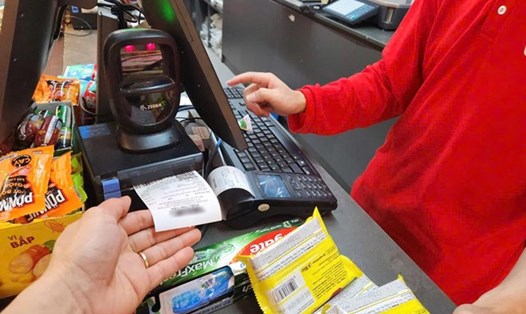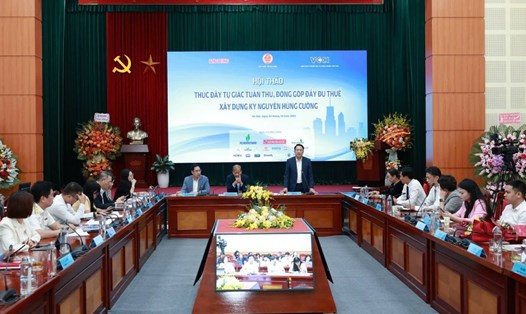Determining reasonable costs is a key factor to reduce tax risks
In the context of applying new tax policies, many business households are starting to face new requirements for revenue transparency and reasonable costs. From the fact that tax is only paid at a certain level, now each revenue and expenditure must have legal documents, an invoice and be clearly recorded. This conversion process is not only a change in procedures, but also a test of the financial management ability of millions of business households.
Ms. Le Yen, Director of Hanoi Tax Consulting Company (Hanoi Tax) said that risks often arise in households that buy goods from individuals or other households without invoices. When the input is invalid, the output can be taxed directly at 810%, causing the tax cost to increase significantly.
Ms. Le Yen emphasized that determining reasonable costs is a key factor to reduce tax risks. An expense that is only recognized when serving business activities, with legal invoices and documents, etc. If it does not meet the prescribed conditions, the fee will be eliminated when settling, increasing the amount of tax payable. In particular, the salary of business owners is not included in reasonable expenses because the household does not have the status of independent legal entity. This is a common mistake that causes many households to collect when the tax authority inspects.
From practical experience, Ms. Le Yen also pointed out many mistakes that cause business households to face risks such as: Not opening their own bank accounts, paying cash, mixing personal expenses and household expenses, or selling via social networks without declaring revenue. She recommended that households need to standardize accounting processes, make cash flow transparent and comply with document regulations to avoid risks during the conversion period.
hidden costs that businesses and business households are having to pay
In the speech of Prof. Dr. Mac Quoc Anh - Member of the Central Committee of the Vietnam Fatherland Front at the Workshop "Promoting self-respect and full tax compliance - Building a strong era" co-chaired by Lao Dong Newspaper and the Tax Department - Ministry of Finance, co-organized by the Vietnam Federation of Commerce and Industry (VCCI) on October 23, 2025, Prof. Dr. Mac Quoc Anh said that there are three types of hidden costs that small businesses are paying.
First is the spiritual cost, businesses are afraid of making mistakes and being fined. According to a survey by the Hanoi State-owned Enterprises Association, more than 65% of informal business households said that "there are not enough people or knowledge to declare correctly". 90% of households converting to businesses said that "fear of tax regulations is the biggest barrier".
A business owner in Dong Da said: "I started a business to expand the scale, but after registering, I was worried about how to pay VAT. I hired an additional outside accountant, 2 million a month, just to "go on the right track".
That is a spiritual cost, and is not included in all administrative reform reports.
Second is the opportunity cost, this is the time to wait and lose cash flow. Prof. Dr. Mac Quoc Anh cited a small manufacturing enterprise in Ha Dong that was suspended from tax refund for nearly 3 weeks just for data fraud when sending electronic invoices. No one intentionally violated, but the consequences were the project stopped, the contract failed, and interest increased. Every waiting day is an incentive cost that businesses have to pay for due to a lack of transparency in feedback on errors.
Third is the cost of information: There are many laws, but the instructions are difficult to understand. Prof. Dr. Mac Quoc Anh said that the law is not lacking, but detailed and easy-to-understand instructions are rare. Many homeowners said: "Every time I ask for taxes, every place says differently." That inconsistency is causing businesses to pay for uncertainty.
From the above reality, Prof. Dr. Mac Quoc Anh proposed three principles for designing the system to support small businesses and business households, towards the "smart pilot" model. In particular, the guiding law must be easy to understand, according to practical situations, reduce legal terminology; reduce paperwork and integrate data between agencies, allow simple submission of declarations via mobile applications; be transparent in error response, help businesses know the reasons for errors and how to handle them early.
The transition to a smart compliance model with the support of tax authorities and modern technologies will create a transparent and favorable business environment, contributing to promoting sustainable economic development.











